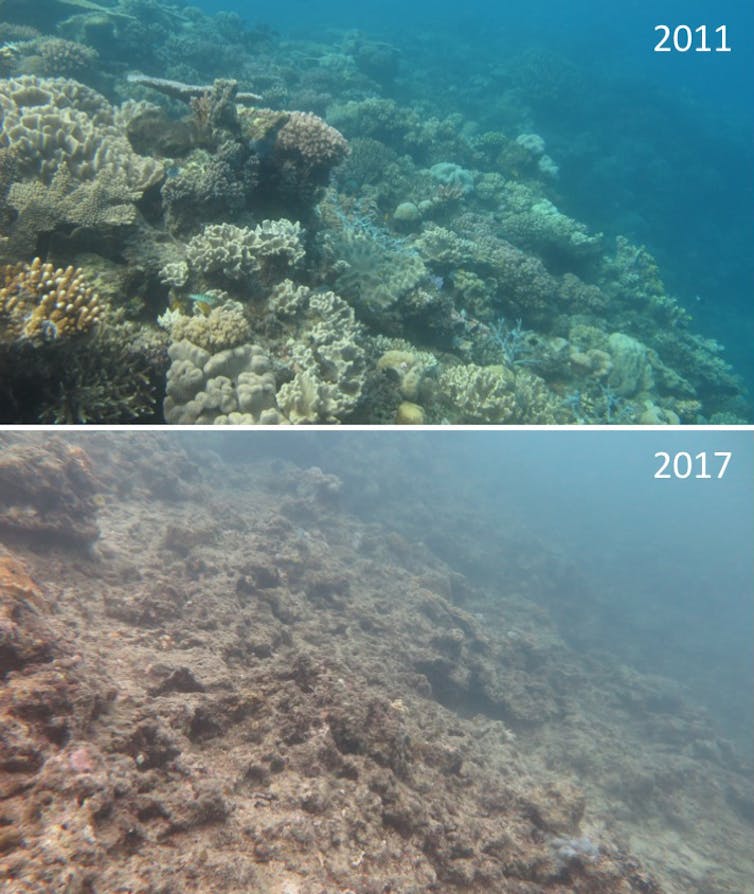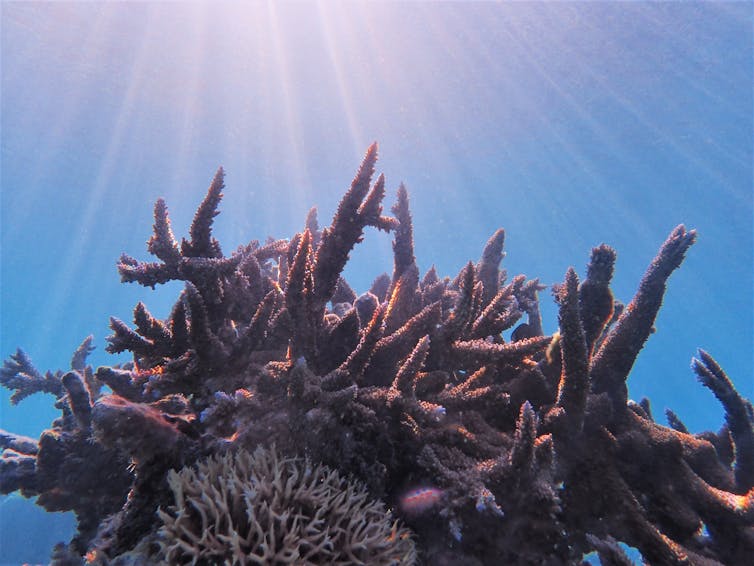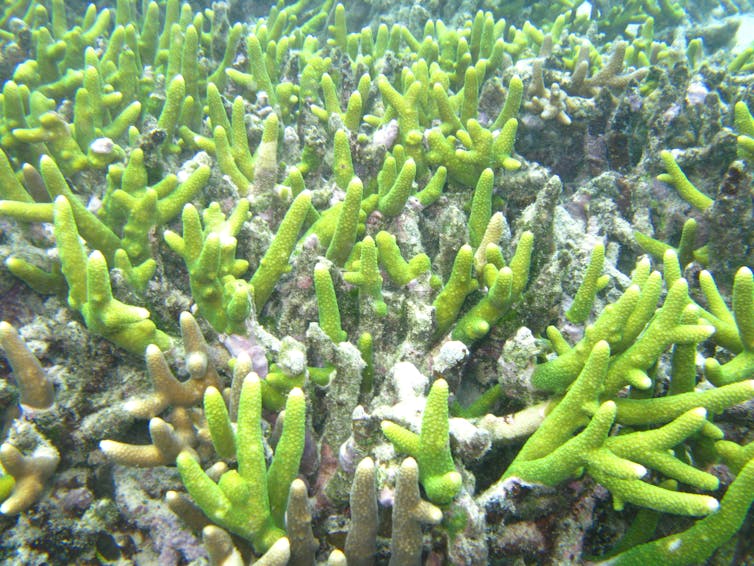Almost 60 coral species around Lizard Island are 'missing' – and a Great Barrier Reef extinction crisis could be next
- Written by Zoe Richards, Senior Research Fellow, Curtin University
The federal government has opposed a recommendation by a United Nations body that the Great Barrier Reef be listed as “in danger”. But there’s no doubt the natural wonder is in dire trouble. In new research, my colleagues and I provide fresh insight into the plight of many coral species.
Worsening climate change, and subsequent marine heatwaves, have led to mass coral deaths on tropical reefs. However, there are few estimates of how reduced overall coral cover is linked to declines in particular coral species.
Our research examined 44 years of coral distribution records around Lizard Island, at the northern end of the Great Barrier Reef. We found 16% of coral species have not been seen for many years and are at risk of either local extinction, or disappearing from parts of their local range.
This is alarming, because local extinctions often signal wider regional – and ultimately global – species extinction events.
 Healthy coral near Lizard Island in 2011, top, then six years later after two bleaching events, bottom.
Zoe Richards
Healthy coral near Lizard Island in 2011, top, then six years later after two bleaching events, bottom.
Zoe Richards
Sobering findings
The Lizard Island reef system is 270 kilometres north of Cairns. It has suffered major disturbances over the past four decades: repeated outbreaks of crown-of-thorns seastars, category 4 cyclones in 2014 and 2015, and coral bleaching events in 2016, 2017 and 2020.
Our research focused on “hermatypic” corals around Lizard Island. These corals deposit calcium carbonate and form the hard framework of the reef.
We undertook hard coral biodiversity surveys four times between 2011 and 2020, across 14 sites. We combined the results with published and photographic species records from 1976 to 2020.
 Micromussa lordhowensis is popular in the aquarium trade.
Zoe Richards
Micromussa lordhowensis is popular in the aquarium trade.
Zoe Richards
Of 368 hard coral species recorded around Lizard Island, 28 (7.6%) have not been reliably recorded since before 2011 and may be at risk of local extinction. A further 31 species (8.4%) have not been recorded since 2015 and may be at risk of range reduction (disappearance from parts of its local range).
The “missing” coral species include:
Acropora abrotanoides, a robust branching shallow water coral that lives on the reef crest and reef flat has not been since since 2009
Micromussa lordhowensis, a low-growing coral with colourful fleshy polyps. Popular in the aquarium trade, it often grows on reef slopes but has not been seen since 2005
Acropora aspera, a branching coral which prefers very shallow water and has been recorded just once, at a single site, since 2011.
The finding that 59 coral species are at risk of local extinction or range reduction is significant. Local range reductions are often precursors to local species extinctions. And local species extinctions are often precursors to regional, and ultimately global, extinction events.
Each coral species on the reef has numerous vital functions. It might provide habitat or food to other reef species, or biochemicals which may benefit human health. One thing is clear: every coral species matters.
Read more: The outlook for coral reefs remains grim unless we cut emissions fast — new research
 Acropa abrotanoides, one of the corals ‘missing’ from around Lizard Island.
Zoe Richards
Acropa abrotanoides, one of the corals ‘missing’ from around Lizard Island.
Zoe Richards
A broader extinction crisis?
As human impacts and climate threats mount, there is growing concern about the resilience of coral biodiversity. Our research suggests such concerns are well-founded at Lizard Island.
Coral reef communities are dynamic, and so detecting species loss can be difficult. Our research found around Lizard Island, the diversity of coral species fluctuated over the past decade. Significant declines were recorded from 2011 to 2017, but diversity recovered somewhat in the three following years.
Local extinctions often happen incrementally and can therefore be “invisible”. To detect them, and to account for natural variability in coral communities, long-term biodiversity monitoring across multiple locations and time frames is needed.
 Acropora aspera has been recorded just once, at a single location, since 2011.
Anne Hoggett
Acropora aspera has been recorded just once, at a single location, since 2011.
Anne Hoggett
In most locations however, data on the distribution and abundance of all coral species in a community is lacking. This means it can be hard to assess changes, and to understand the damage that climate change and other human-caused stressors are having on each species.
Only with this extra information can scientists conclusively say if the level of local extinction risk at Lizard Island indicates a risk that coral species may become extinct elsewhere – across the Great Barrier Reef and beyond.
Authors: Zoe Richards, Senior Research Fellow, Curtin University




